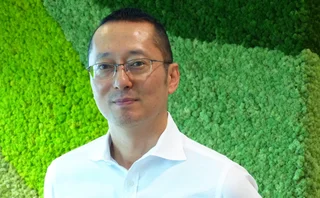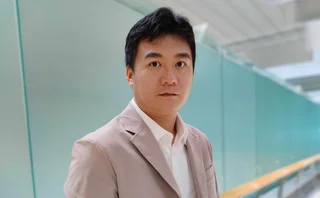
Best in Japan - Societe Generale
Societe Generale (SG) has been a bright light in a tough Japanese market, focusing its attention on expanding market share through a variety of avenues outside of the traditional structured products business. Its expansion into the country and continued focus on servicing clients in difficult conditions mean it is a worthy winner of the Structured Products award for Japan.
Uncertainty surrounding the country's new financial services regulation - the Financial Instruments and Exchange Law (Fiel), introduced at the end of September - has meant that banks and distributors have been far more circumspect when issuing new structured products, and volumes and innovation have declined.
Despite the difficult market, SG boosted its equity derivatives sales and trading team from 80 in 2006 to 100 in 2007. In January, it set up its first structured deposit business in Japan, hiring a 10-man team from Shinsei Bank, the biggest player in the country's structured deposits market. With 30 to 40 participants offering structured deposits in Japan, competition is stiff. "Most of the financial institutions don't have much exposure to SG, so I believe they would be more willing to take credit exposure to us through our deposits," says Kenji Iwahashi, head of SG's structured products group in Tokyo.
SG's move into structured deposits makes it the first foreign bank to step beyond the usual haunt of structured notes and take on the domestic banks that have traditionally dominated the structured deposit business. Despite the competition, Iwahashi says that SG's innovative structuring capabilities, coupled with its newness, give it a competitive advantage over local commercial banks. The French bank is hoping to reach Yen30 billion ($272 million) of issued deposits by the end of the year, with the aim of reaching some 300 clients over the next three years.
A more significant initiative took place in July, when the bank created Lyxor Japan, a domestic branch of its alternative asset management arm, to focus its attentions on the country's structured fund business. Although it already has some $5 billion in alternative and structured funds under management, making it one of the dominant players in Japan's alternative funds business, SG was looking to plant its seed even deeper. Lyxor Japan is the first asset management company in Japan to specialise in alternative and structured funds.
Lyxor Japan will offer three types of product in the form of onshore investment trusts - structured products, alternative products and index tracker funds. It is targeting around Yen80-100 billion in assets under management within a year, with the first structured note fund due by the end of December. Lyxor aside, SG has already launched two guaranteed structured funds in 2007, with issuance amount of roughly Yen5 billion. One of the funds is linked to a fund of hedge funds, and the other to the Nikkei index.
More generally, the bank has changed tack this year in the structures it offers. "We have been looking to use zero-coupon leveraged funds rather than CPPI or embedded call structures this year," says Hideaki Takahashi, managing director in the structured products department at SG. "Although the latter allow for shorter maturities, the former are easier for investors to understand, and mitigate some of the risk of the fund exploding in the case of an equity market downturn, as happened in August."
Other innovations include structured notes linked to exotic payouts, with over Yen18 billion of these products issued in 2007. SG has been looking to expand its coverage of underlyings to include commodities such as wheat, complementing those fixed to gold and crude oil. Two popular themes have been Commodity Himalayas, which takes the best-performing underlying commodity as the coupon (a best-of-basket structure), and Commodity Altiplanos, which provides a high coupon if the commodity reference prices of all commodities in the selection basket are at or above their barrier levels.
Longer-term foreign exchange products, such as Power Reverse Dual and FX Target Redemption notes, which take advantage of the interest-rate gap between yen and foreign currencies to achieve an above-average yield, have continued to be popular among Japanese clients. This year, SG has taken these products from the traditional single underlying structure to multiple underlying references with various early redemption schemes.
Only users who have a paid subscription or are part of a corporate subscription are able to print or copy content.
To access these options, along with all other subscription benefits, please contact info@risk.net or view our subscription options here: http://subscriptions.risk.net/subscribe
You are currently unable to print this content. Please contact info@risk.net to find out more.
You are currently unable to copy this content. Please contact info@risk.net to find out more.
Copyright Infopro Digital Limited. All rights reserved.
You may share this content using our article tools. Printing this content is for the sole use of the Authorised User (named subscriber), as outlined in our terms and conditions - https://www.infopro-insight.com/terms-conditions/insight-subscriptions/
If you would like to purchase additional rights please email info@risk.net
Copyright Infopro Digital Limited. All rights reserved.
You may share this content using our article tools. Copying this content is for the sole use of the Authorised User (named subscriber), as outlined in our terms and conditions - https://www.infopro-insight.com/terms-conditions/insight-subscriptions/
If you would like to purchase additional rights please email info@risk.net
More on Awards
Joining the dots: banks leverage tech advancements for the future of regulatory reporting
The continued evolution of regulatory frameworks is creating mounting challenges for capital markets firms in achieving comprehensive and cost-effectiveawa compliance reporting. Regnology discusses how firms are starting to use a synthesis of emerging…
Markets Technology Awards 2024 winners' review
Vendors spy opportunity in demystifying and democratising – opening up markets and methods to new users
Derivatives house of the year: JP Morgan
Risk Awards 2024: Response to regional banking crisis went far beyond First Republic
Risk Awards 2024: The winners
JP Morgan wins derivatives house, lifetime award for El Karoui, Barclays wins rates
Best product for capital markets: Murex
Asia Risk Awards 2023
Technology vendor of the year: Murex
Asia Risk Awards 2023
Best structured products support system: Murex
Asia Risk Awards 2023
Energy Risk Asia Awards 2023: the winners
Winning firms demonstrate resiliency and robust risk management amid testing times
Most read
- Top 10 operational risks for 2024
- Top 10 op risks: third parties stoke cyber risk
- Japanese megabanks shun internal models as FRTB bites







